Denver
Many wonder whether a 21st century strategy is possible with an elected school board, because laying off teachers and closing schools can trigger fierce resistance. But Denver Public Schools has embraced charter schools and created “innovation schools.” Denver still has a long way to go, but its progress offers hope to other urban districts with elected school boards, which remain the norm. A combination of courageous leadership, political skill, and positive results has yielded broad support — voters have responded by electing a 7–0 majority for innovation.
Photos by Emmeline Zhao
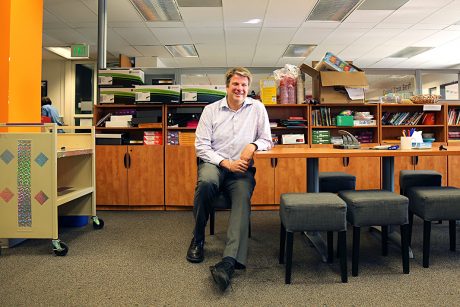
Bill Kurtz
CEO, DSST Public Schools Denver
We've had a great partnership with Denver Public Schools and we're deeply appreciative for the work that we have done together to better serve students across Denver. That's really exciting when systems can put aside differences to work together to deeply serve the families and students in the communities that you're charged to serve.
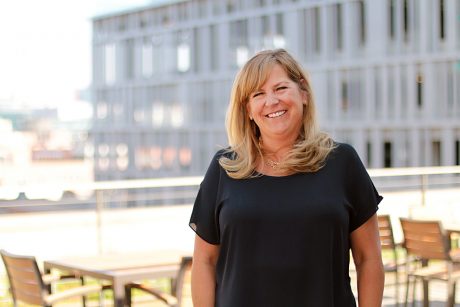
Jen Walmer
Colorado State Director, Democrats for Education Reform Denver
That we're not doing enough fast enough keeps me up all the time. It's not even about the outcomes for students, it's are we keeping students safe in the classroom? There was a child attacked on the bus last week. It's the constant kind of pressure about what we're doing for the kids in Denver who come to those school buildings every day and I'm not sure if we're doing enough, fast enough, and I'm fearful that we're going to spend too much time resting on the laurels and the small increases and academic performance and while those are incredibly important, we still have a generation of kids sitting in our buildings every day that aren't getting what they need. We have schools that have 11 percent proficiency in reading, and that's a crisis.
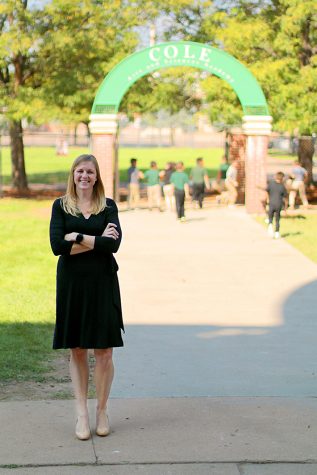
Jessica Roberts
CEO, Luminary Learning Network Denver
I feel very blessed that I grew up getting to travel and getting to see the world and getting to have a lot of life experiences. Many of the students I taught and I work with on a daily basis don't have those experiences and they don't see a life beyond high school. That changes the trajectory of your life. The statistics show the higher your education, the better off you're going to be in the long run.
And so I think everyone should have the belief in themselves that they can excel, that they can go to college, that they can go to technical school, that they can do something that their parents didn't do, and that they should have access to those things. I think that drives me.
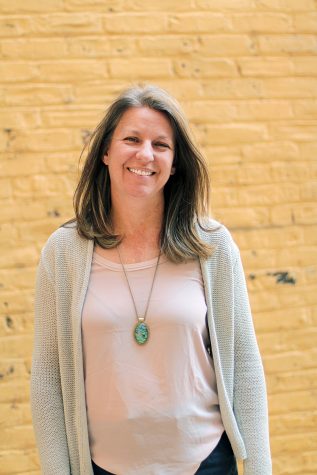
Mary Seawell
Senior Vice President of Education, Gates Family Foundation Denver
After I'd been on the board less than a year, we did a major turnaround in a full feeder pattern for Northeast Denver. We basically turned around elementary schools all the way through high schools. It was incredibly contentious and also thoughtful, though — the process I think the district undertook. Our role as elected school board members was really important, not just to be in a cafeteria meeting with community members, but also really to vote and say this is the direction we thought the district should take.
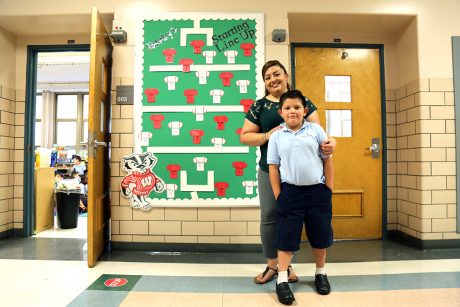
Laura Munoz
Parent of 2nd-grader Victor, Rocky Mountain Prep Southwest Elementary Charter School Denver
I feel like this community is a little bit left behind, because of the low income status. And graduation rates are at an all-time low for Hispanic students. And it makes me sad and it makes me scared for my child. It makes me kind of want to move away from this area, and that's why in my opinion I wanted to go to another city and figure it out, travel if I had to. But, I didn't think that this community would make him the man that I want him to be. And I didn't value education, again because I wasn't challenged by my teachers.
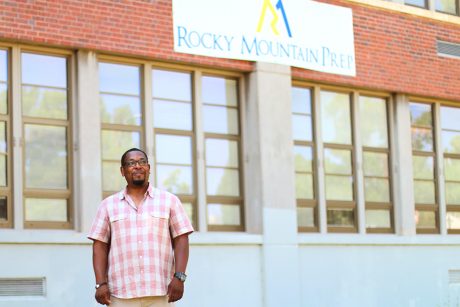
Cliffton L. Harris
Parent of 4th-grader Maddox and 2nd-grader Mason, Rocky Mountain Prep Creekside Elementary Charter School, and 7th-grader Makenzie, Hamilton Middle School Denver
My kids Maddox and Mason, they go to Rocky Mountain Prep and they get challenged every day. They have, like I said earlier, they have the PEAK value system, which means Perseverance, Excellence, Adventure, and Kindness, and that's something that I hold dear to myself — as a parent, as a citizen of the United States. You know, these are some of the values that we have to instill in our children so they become productive. If you don't instill those kinds of values, or any kind of values, then the kids just fall by the wayside ... That's what I want my children to be, a little bit ahead of the game, 'cause I don't want them to have to fall back.
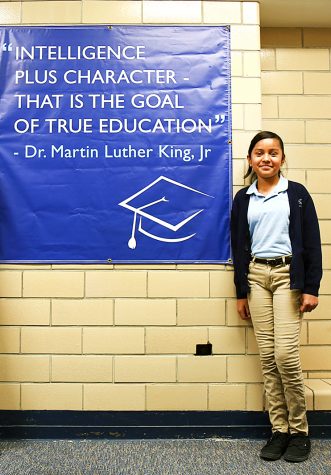
Abril Sierra
5th grader in Cornell University classroom, University Prep–Steele Street Denver
Learning and growing my brain is so important to me because I want to accomplish good things in life, when I grow up. I want to go to a good college. I want to have a good career in life. Because that's something just very important to me. Especially for my family, because they say that they want me to have a good job, a good life, do something important, and I understand that a lot. And I know I want to do something good in life. I might want to become a doctor, or a veterinarian, or a scientist, or something important like that.
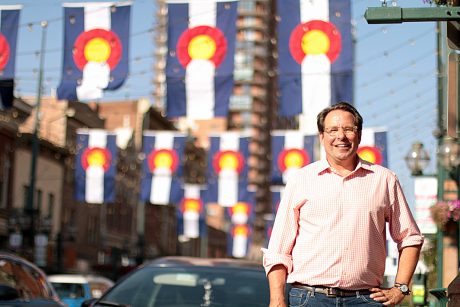
Van Schoales
CEO, A+ Colorado Denver
This question really that I struggled with when I went into teaching was, "Are schools just going to be a reflection of the inequities of society or are schools going to be an engine for changing the inequities?" And so I just sort of committed and have continued to recommit to focusing on that work, recognizing that it's really hard and it takes a long time, but I've seen things change as I sort of reflect back every decade and say, "Oh, yeah." In some ways it's depressing to think how little things have changed but on the other hand, we now have schools that are supporting most kids to be successful in college and career and life. And we didn't have those schools before. So I'm sort of inspired by a lot of the experiences that kids are having in a number of new schools around the country.
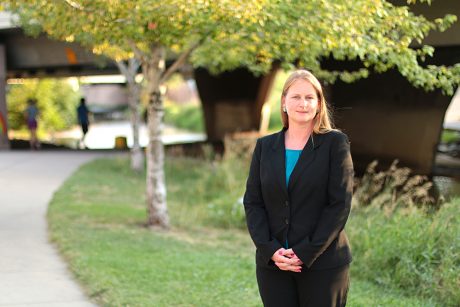
Kimberlee Sia
CEO, KIPP Colorado Schools Denver
I grew up in a single-parent home in a farming community in Iowa. There was not an expectation that anyone would go to college. My mom worked multiple jobs and so my job was to take care of my sisters. The only time I was really excited about anything was when I was at school. When I was in middle school, Iowa passed an open enrollment law where you could go to school wherever you wanted. This was the first school choice that I didn't realize then, but I chose to go to a more urban high school than my rural high school of 100 students. While I was at that high school, I started to realize that college was an option and that people went to college and that this was something that I could do to think about where I would want to go next in my life.
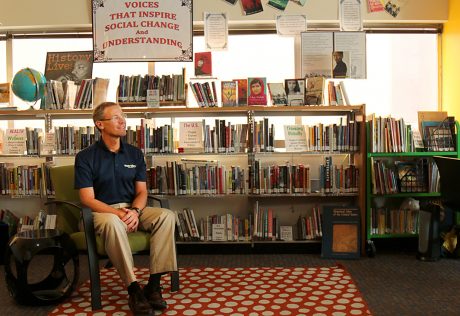
Tom Boasberg
Superintendent, Denver Public Schools Denver
I think it comes from a commitment both from our charters and from us, that we're a heck of a lot better off doing this together and finding solutions together than finger-pointing and blaming each other. I think in too many places in this country there's a very destructive but mutually convenient situation where the district wags its fingers at the charters and says, "You're not serving the same kids. You don't play by the same enrollment rules," but doesn't allow them to do so. It doesn't provide them the resources to do so, in terms of, for example, special education. And the charters, equally bad, sit out there and wag their fingers at the district and say, "You don't give us resources. We don't get the same access," but at the same time don't play by the same rules around enrollment or special education. And each side is almost happier, for its own political self-interest, to opine and criticize and rest easy in a no-compromise world. Compromise is harder, and I think we've put a heck of a lot of time in Denver trying to find compromises.
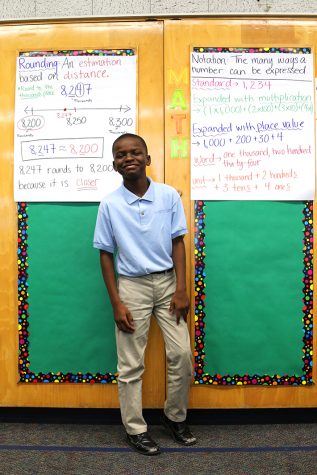
Emmanuel Beya
5th grader in Cornell University classroom, University Prep–Steele Street Denver
Last year we learned about segregation between African Americans and whites, and we also learned about how women back in the day didn't have the right to vote, and they didn't also have the right to have a job. It's important to learn about those things because it will help me in the future, because I really want to go to Virginia Tech as my college, and I could get a scholarship to go there. And it could help me, and my family, have a better life. It could also help me because I could learn more, and my brain could get bigger. And it could also help me become a smarter kid, and helps others who aren't smart.

